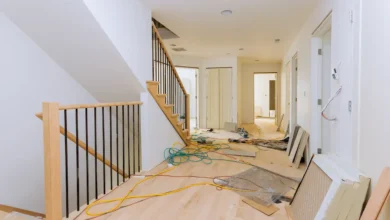The gift economy
What do open-source software, Wikipedia and an annual culture festival in the Nevada desert have in common? Rosanne Bersten examines the gift economy, the idea that you can do work for nothing and ‘gift’ it to others and, somehow, you will be provided for.
It’s a dream that goes beyond barter: you don’t hand someone your work in exchange for something of equal value; rather you simply hand them your effort and sit back satisfied, knowing you’ve done good deeds and trusting that karma or the law of averages will mean your good deed is repaid, either by someday receiving a valuable item or more likely by looking up something in Wikipedia and benefiting from an entirely unrelated type of work.
In 1986, a small group of people started a festival called Burning Man on a beach in California. More than 20 years later, this week-long extravaganza in the Nevada desert creates a temporary city of 50,000 people. One of the most striking things about this city is that – after the citizens have paid their $300-plus entry fee – there is no money exchanged inside its borders. Instead, everybody brings everything they need for the whole week and lives by exchanging gifts with the other festival citizens.
Growing social capital
According to Burning Man founder Larry Harvey, the difference between a market and a gift economy is that the former is based on scarcity while the latter is based on abundance. And he says a gift economy fosters what Robert Putnam called ‘social capital, that is, it forms connections between people.
The gifts that are given on the Burning Man playa range from handmade necklaces to fresh oysters on ice (yes, in the middle of the desert) to large-scale art installations.
Taken to its logical conclusion, the ideal is a world without money. Is that even possible? Some believe capitalism has had its day. We now have too much ‘stuff’ in the world and we can stop now.
Market corrections
That dream might take a while, but in the meantime, organizations like Freecycle have taken the idea to an organized, global level.
“Capital markets have a bad time of measuring the environmental impact of our items just being thrown away rather than being reused,” says Beal. “Currently there is no number being placed on how much CO2 is in the environment as far as the monetary damage being done there.
“I like to think that the ultimate goal of Freecycle is to complement the capital markets and capital economy with a gift economy that enables a reduction in impact on the environment while capturing things that still have functional reuse rather than monetary use.”
Riding the Freecycle
Deron Beal, 41, started Freecycle in Tucson, Arizona after his job with a recycling non-profit kept turning up items that weren’t recyclable but needed homes. Now, the organization has more than 5.3 million members in more than 85 countries and has just topped 100,000 members in Australia.
“I would go out with the recycling crews and occasionally see an old desk or computer or whatever sitting next to the bin we were picking up,” he says.
“We filled up an entire warehouse full of non-recyclable but good stuff. It just took off from there. I sent out the first email on 1 May 2003 and it went to about 30 or 40 friends and a handful of non-profits. Within a month we had 600-800 members which ironically at the time I thought was much too large to succeed.
“Then we got an article in a national magazine here called Utne Reader and we suddenly had probably 15 or 20 cities applying to join all at once. We knew it was coming so we set up the website to instruct them how to join.
“People joined for the recycling benefit and to keep good stuff out of landfills,” he says. “The second benefit was totally unanticipated: community building. Unlike putting something on the kerb where it just disappears, you actually get to pick who receives your item. Maybe it is a single mother or someone who is going off to college or a local non-profit organization, it is up to you. Eventually, you meet that person face to face when they pick the item up from you.”
Using stuff more efficiently
Beal believes Freecycle is a product of the times but is not convinced this means we are living in a more charitable era.
“I think originally what fuelled our growth was the environmental aspect of what we are doing,” he explains. “What you see internationally is this really strong sense kicking in that we need to get our acts together and start to be more aware of our consumptive behavior.
While Beal is critical of overconsumption, he stops short of saying there is too much stuff in the world. Rather he believes we don’t circulate, recycle, swap and repair things efficiently enough. If we did, we could produce less.
“It doesn’t seem like it is that far-fetched when you think about it,” he says. “If you are making something new, make it out of recycled materials, right? #




